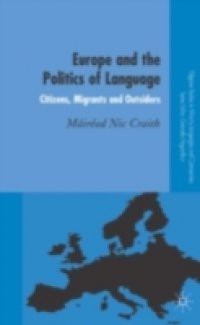Beginning with a critique of the concept of Europe, this book explores the political context for current language policy. Social and political status within the European Union can bring significant benefits for speakers of national or official languages. While speakers of minority and contested languages have derived considerable benefits from the trans-national context, many are less than happy with the hierarchical structure of EU language policy. This book focuses on languages spoken in Europe by Europeans and non-Europeans alike. The author explores key questions such as the impact of political boundaries on the concept of language and the significance of language for citizenship in Eastern Europe in particular. It assesses the quest for recognition and legitimacy among speakers of minority and contested languages and queries the non-recognition of migrant, non-European languages. The book adopts an interdisciplinary approach from a social science perspective and advocates an alternative approach to language policy.

